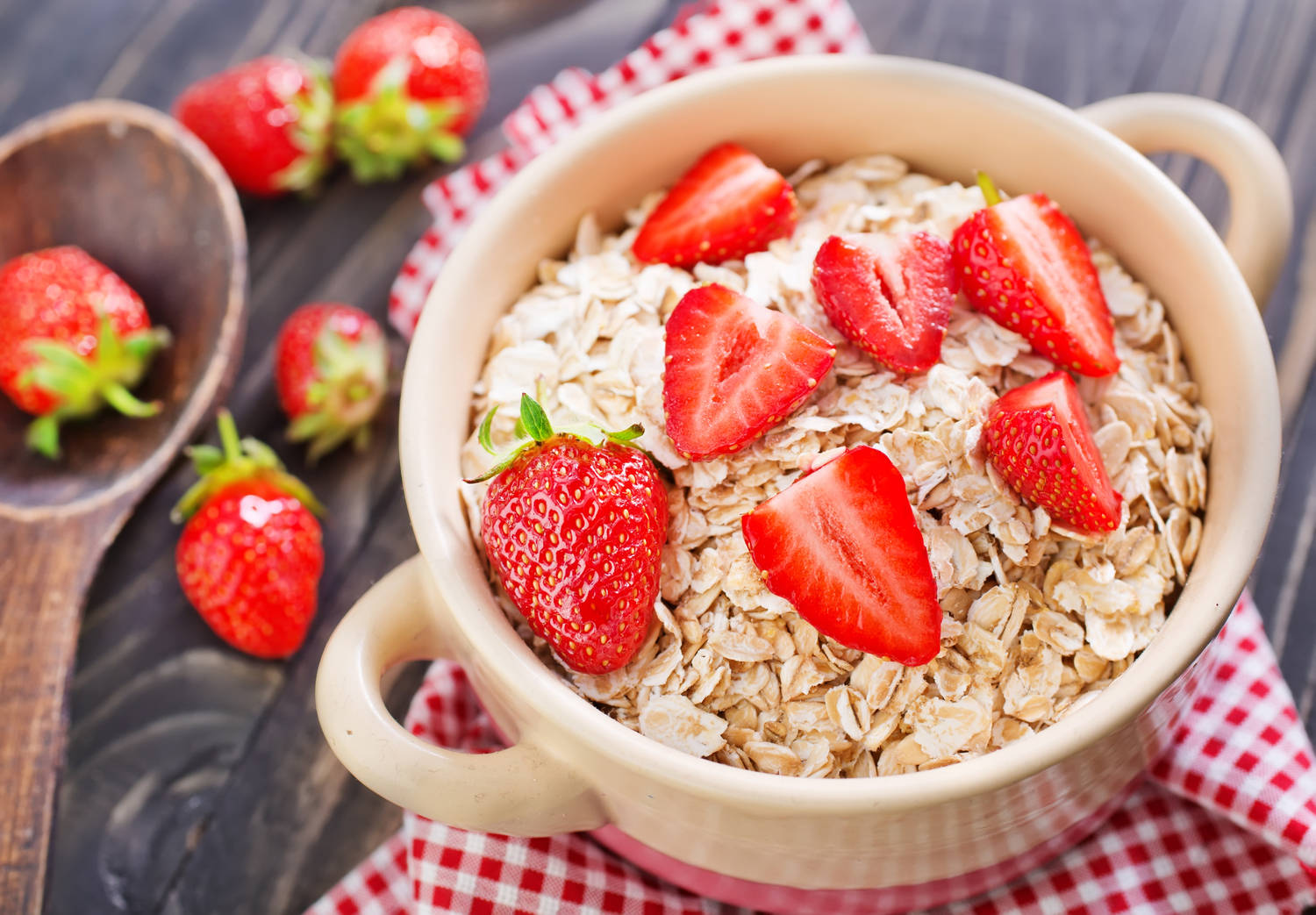Comprehensive Guide to Foods That Help Relieve Heartburn and Acid Reflux Symptoms
Discover comprehensive dietary strategies to effectively manage and relieve heartburn symptoms. Learn about foods that soothe reflux, including oatmeal, vegetables, bananas, yogurt, and lean proteins, while avoiding triggers like citrus, spicy foods, and fried items. This guide provides practical advice for incorporating reflux-friendly foods into your daily routine, promoting better digestion, reducing discomfort, and improving quality of life. Whether you suffer occasionally or regularly, adopting these dietary tips can significantly alleviate heartburn and support long-term digestive health.

Effective Dietary Strategies to Alleviate Heartburn
Gastroesophageal reflux disease (GERD), popularly known as heartburn, is a common digestive disorder characterized by a burning sensation occurring when stomach acids flow back into the esophagus. This reflux results in irritation and discomfort, significantly impacting daily life if not properly managed. The foods we choose to eat play a crucial role in either exacerbating or alleviating these symptoms. Identifying and incorporating heartburn-friendly foods can be a game changer in symptom management and overall digestive health. Understanding the root causes of GERD, recognizing its symptoms, and adopting an appropriate diet are vital for those seeking relief.
What is GERD and What Are Its Symptoms?
GERD occurs primarily when the lower esophageal sphincter (LES)—a ring of muscle at the stomach-esophagus junction—becomes weakened or relaxed, thereby allowing stomach acids to escape into the esophagus. Several factors contribute to this condition, including poor posture, obesity, smoking, certain medications, and dietary choices. The hallmark symptom is a burning sensation in the chest, often referred to as heartburn, which may be accompanied by a bitter or acidic taste, hiccups, sore throat, dry cough, and difficulty swallowing. Recognizing these signs early enables individuals to make dietary and lifestyle changes that can significantly reduce discomfort.
Choosing the right foods is essential in managing acid reflux. Incorporating specific foods into your daily diet can soothe irritated tissues, prevent flare-ups, and promote better digestion.
Oatmeal: A Gut-Soothing Superfood
Oatmeal stands out as an excellent breakfast option for those suffering from heartburn. It’s easy to digest, high in soluble fiber, and acts as a natural buffer against stomach acid. Regular consumption of oatmeal aids in maintaining consistent digestion and reduces the likelihood of acid reflux episodes. Moreover, oats provide vital nutrients and can be customized with gentle toppings like bananas or honey without triggering symptoms.
Whole Grains for Better Digestive Health
Switching to unprocessed, whole grains such as whole wheat bread, brown rice, millet, and barley can significantly support digestive health. Unlike refined grains, non-processed options retain their fiber and nutrient content, helping to regulate bowel movements, absorb excess stomach acid, and prevent reflux. Incorporating these into meals promotes a healthy gut environment and reduces irritation caused by acidity.
Colorful Vegetables: Low-Acid and Nutrient-Dense
Low-fat, non-sugary vegetables like spinach, beans, asparagus, fennel, cucumbers, potatoes, celery, and leafy greens are invaluable for managing heartburn. These vegetables are rich in fiber, antioxidants, and essential nutrients while being naturally low in acidity. Including them in your diet helps to reduce inflammation, soothe the esophageal lining, and promote optimal digestion. Cooking methods should favor steaming, boiling, or baking to preserve their gentle nature.
Natural Remedies: Ginger’s Anti-Inflammatory Properties
Ginger has been used traditionally for gastrointestinal ailments due to its natural anti-inflammatory and carminative properties. Incorporating fresh ginger into your meals, drinking ginger tea, or adding ginger extract can help ease gastrointestinal discomfort, reduce nausea, and lessen acid reflux episodes. Its soothing effects on the digestive tract make it an essential addition to a reflux-conscious diet.
Bananas: Alkaline and Rich in Fiber
Bananas are an excellent fruit choice for heartburn sufferers because their alkaline nature neutralizes stomach acid. Rich in soluble fiber, bananas aid in normalizing bowel movements, preventing constipation, and supporting overall digestive health. They are a convenient snack or ingredient that can be added to smoothies, cereals, or eaten on their own for quick relief.
Yogurt and Fermented Foods: Calm the Esophagus
Yogurt, especially plain and unsweetened varieties, provides a soothing coating to the inflamed esophageal lining. It also contains probiotics, beneficial bacteria that promote gut health and improve digestion, thereby reducing reflux incidences. Including probiotic-rich foods like kefir and fermented vegetables can further boost gut flora balance and help manage symptoms more effectively.
Nuts, Seeds, and Healthy Fats: Promote Digestive Wellbeing
Consuming small portions of nuts and seeds can help absorb excess stomach acid and provide healthy fats needed for overall health. Choices like walnuts, flaxseeds, and almonds contain omega-3 fatty acids that support anti-inflammatory processes. olive oil, in moderation, is a preferred fat source owing to its beneficial effects on digestion and heart health. Limiting trans fats and processed fats is crucial, as they can aggravate reflux symptoms.
Hydrating Fruits: Safe and Reflux-Friendly Choices
Fruits such as pears, apples, watermelon, cantaloupe, and avocados are less likely to trigger acid reflux compared to citrus and highly acidic fruits. These hydrating options support digestion, provide essential nutrients, and can be incorporated into meals or enjoyed as snacks. Staying well-hydrated also helps dilute stomach acid, reducing the likelihood of reflux episodes.
Lean Protein Sources: Reduce Reflux Triggers
Opt for lean meats like skinless poultry, fish, and seafood, which are low in fat and less likely to cause reflux. Egg whites are also a safe choice due to their minimal acidity and fat content. Preparing these proteins through baking, grilling, or steaming maintains their reflux-friendly profile, while fried or processed meats should be avoided to prevent aggravating symptoms.
Foods to Limit or Avoid
Several foods are known to trigger or worsen acid reflux and should be kept to a minimum or eliminated from the diet. These include citrus fruits, tomatoes, high-fat foods, onions, spicy dishes, carbonated beverages, caffeine, alcohol, chocolate, peppermint, processed snacks, fried foods, and fast food. Awareness of these triggers and moderation can profoundly impact symptom control.
Managing GERD effectively involves a combination of dietary adjustments, lifestyle modifications, and medical guidance. While choosing heartburn-friendly foods can reduce the frequency and severity of symptoms, it’s essential to consult healthcare professionals, especially if symptoms persist or worsen. Customizing your diet to suit individual tolerances and health conditions ensures a sustainable approach to managing reflux and maintaining overall digestive health.





